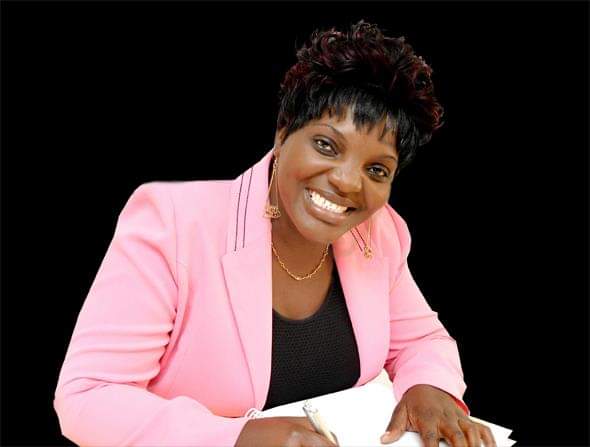|
Getting your Trinity Audio player ready…
|
Writes Marlvin Ngiza
Women and girls with disabilities were reported to be more exposed to gender-based violence, a situation that has been attributed to a lack of information for the group, discrimination by families, and challenges in acquiring services due to unfriendly environments.
In a message to observe the 16 Days of Activism Against Gender-Based Violence, Deaf Zimbabwe Trust Executive, Director Barbra Nyangairi implored stakeholders to scale up inclusion for people with disabilities in their awareness campaigns and to package the messages in formats that accommodate all people with different impairments.
“GBV is a pandemic for women and girls with disabilities particularly those with intellectual or psychosocial disabilities. Over 20 cases are reported on a monthly basis and these are the tip of the iceberg. While we use the 16 days to amplify the issue, preventing GBV is something we do all year round. Women and girls with disabilities face challenges in reporting and struggle with abuse perpetrated by caregivers such as negligence, and cruelty due to dependency. Caregiver violence is rampant and under-reported as women and girls depend on the caregiver for transport to report. Also access to services is a challenge and assessment centres are far and it is costly for them to go and file reports.
“Disability inclusion will ensure that the rights of all women and girls with disabilities are protected, to be inclusive is an attitude and it means changing the lens with which we see women and girls with disabilities giving them more value and ensuring that interventions take into account that women and girls with disabilities are not a homogeneous group. Some of the easy steps that stakeholders can take to ensure that women and girls with disabilities are included include the provision of sign language, making spaces physically accessible, simplifying information, and training staff to be disability friendly.
“As DZT we are providing information highlighting the things that make women and girls with disabilities vulnerable, how families and communities can protect and prevent GBV from happening. We are saying that prevention is better and DZT provides awareness, victim support, court monitoring, and advocacy to ensure that services are accessible,” said Nyangairi
The Albinism Network Zimbabwe Executive Director, Blessing Chikuhwa, revealed that women and girls with albinism who reside in marginalised communities have been extremely affected due to discrimination that has been said to be high in rural setups.
He further called for resource mobilization by the government and other players towards empowering women and girls with albinism in marginalised communities.
“GBV is affecting the albinism community negatively as most of the girls especially in marginalised areas are being harassed when they get married while the in-laws usually discriminate against them. Most of the victims are in marginalised areas where it is difficult for them to get assistance from the Zimbabwe Republic Police and most people with albinism academically are affected due to poor eyesight, so they are easily taken advantage of due to low reasoning and knowledge of Law.
“We are appealing to the general public, government, and the corporate world to join hands together and assist us to kick-start projects as an organisation as this will help us to raise enough funding to be able to reach out to those areas where young women and girls are being abused for ritual purposes and some are being abused due to poverty as they have nowhere to put their head or something to eat,” said Chikuhwa
Moreover, Albino Charity Organisation Executive Director Loveness Mainato cited that people with disabilities have been facing justice-related challenges as some of their cases would be declared malicious reports due to lack of evidence to justify their reports, a situation which she said has been caused by a lack of right tools that can assist them to capture the evidence.
“Currently, I can say there is no adequate attention being given to people with albinism on issues of GBV. The issue is that people with disabilities in general are not getting satisfying justice services. When they go and report their cases, the justice system will demand evidence. We are appealing to the justice system to consider and thoroughly investigate all reported cases so that people with disabilities also get justice,” she said
One of the gender activists and a disability advocate who is also the Director for Disability Voices Zimbabwe Nyasha Mahwende has bemoaned parents who have been dumping their children with disabilities, a situation which she said has been exposing girls to sexual exploitation.
“It is worrisome that some mothers abandon their children because of a disability. This really puts young girls in danger of sexual abuse since they would not have someone to cover them, and perpetrators would be taking advantage of them. I encourage parents to love their children despite the condition,” said Mahwende
The theme for the 2023 commemorations is “UNITE! Invest to Prevent Violence against Women & Girls. The 16 Days Of Activism period presents an opportunity to continue the social mobilisation that has been ongoing throughout the year towards the elimination of GBV and support advocacy around GBV awareness and prevention.
According to the United Nations Population Fund, about 1 in 3 women aged 15 to 49 have experienced physical violence and about 1 in 4 women have experienced sexual violence since the age of 15 in Zimbabwe.
